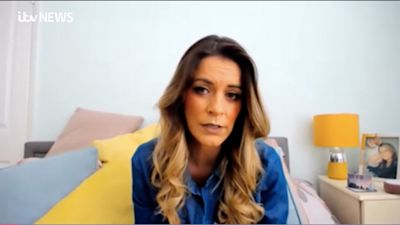Eating Disorders Awareness Week: Where to seek help if you're struggling

Former Emmerdale star, Gemma Oaten, who now runs the Yorkshire-based charity SEED is helping to raise awareness of what has been described as the "catastrophic rise" in the number of people seeking help with eating disorders.
From 1-7 March 2021, is Eating Disorders Awareness Week, which aims to increase understanding of eating disorders, challenge stereotypes and stigmas.
Gemma, who struggled with an eating disorder herself from the age of 10, warns that services face a 'tsunami' of patients after the charity saw out-of-area referrals more than double in the past year.
SEED have also seen a 56% increase in the number of self-referrals from the start of the pandemic - compared to 2019.
Gemma expressed her concerns about the impact lockdown is having on those struggling with eating disorders:
What to do if you have an eating disorder?
You might begin by writing down your thoughts and feelings affecting your eating and how long the eating difficulties have been going on.
Perhaps you think about how you might want someone to help you.
When you do decide to talk to someone, it doesn't have to be face-to-face. An email, text or phone call can all be a good way of starting the discussion. Go with how you feel most comfortable.
If you would rather not talk to someone you know, the Beat Helpline is available every day.
It can be helpful to have some information to give to the person you speak to or direct them towards websites such as SEED or the NHS.
How to help someone with an eating disorder
How you help will be determined in part by your relationship with them for example if they are you child or a pupil.
It can be hard to speak to someone with an eating disorder not least because they may not be aware or are in denial they are suffering with one. But it is vital you encourage them to open up so they can get the help they need. Here are a few of the ways you can approach someone you are worried about.
Be informed. SEED - eating disorder support service has lots of information tailored at family and friends of people with eating disorders to help you better understand.
Have some information or leaflets to hand them.
Choose a time and a place were you will be most relaxed. Avoid talking before or after mealtimes.
Try not to centre the conversation around food and/or weight.
Avoiding getting angry or frustrated.
Don’t wait too long before approaching them again even if it was a difficult conversation
For more information on the help and support offered by the charity SEED click here.
If you think you may be suffering from an eating disorder, the following link can provide support and useful advice: